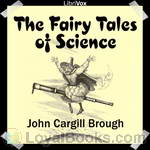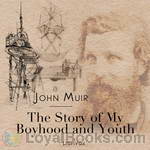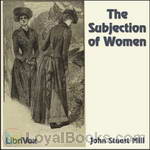|
Books Should Be Free Loyal Books Free Public Domain Audiobooks & eBook Downloads |
|
|
Books Should Be Free Loyal Books Free Public Domain Audiobooks & eBook Downloads |
|
Science |
|---|
|
Book type:
Sort by:
View by:
|
By: John Burroughs (1837-1921) | |
|---|---|
 Bird Stories from Burroughs
Bird Stories from Burroughs
What a better way to learn about birds than to read this delightful collection of interesting bird stories! John Burroughs was a nature essayist. These creative, observation- and emotion-driven stories about birds (largely from the Northeastern states), have been gathered together into a single volume from all his various works. Every chapter follows one species of birds, and the chapters have been arranged chronologically according to the time of the bird's arrival during the year. This collection has lovely illustrations of the birds by Louis Agassiz Fuertes, and some stories also have poems to go along with them. | |
 Winter Sunshine
Winter Sunshine
| |
 Wake-Robin
Wake-Robin
| |
 Squirrels and Other Fur-Bearers
Squirrels and Other Fur-Bearers
| |
 The Wit of a Duck and Other Papers
The Wit of a Duck and Other Papers
| |
By: John Cargill Brough (1834-1872) | |
|---|---|
 The Fairy Tales of Science
The Fairy Tales of Science
This book, written in the mid 19th century and illustrated by Charles H. Bennett, provides an entertaining introduction to topics in science for children. In each chapter, the author uses a popular myth or fairy tale to lay the groundwork for an equally fascinating "fairy tale of science" full of interesting facts and real life examples. | |
By: John Claridge | |
|---|---|
 The Shepherd of Banbury's Rules to Judge of the Changes of the Weather, Grounded on Forty Years' Experience
The Shepherd of Banbury's Rules to Judge of the Changes of the Weather, Grounded on Forty Years' Experience
| |
By: John Clay Coleman | |
|---|---|
 Jim Crow Car; Or, Denouncement of Injustice Meted Out to the Black Race
Jim Crow Car; Or, Denouncement of Injustice Meted Out to the Black Race
"My opposition to injustice, imposition, discrimination and prejudice, which have for many years existed against the colored people of the South, has led to this little book. In many parts of America the press has been furnished with “matter” for defending the colored people, through the medium of “Coleman’s Illustrated Lectures.” By request of my many auditors, some of whom being leading elements of the Northern States and Canada, this volume is published. Many persons interested in the welfare of the negro, have sought a more elaborate book on the Southern horrors... | |
By: John Codman (1814-1900) | |
|---|---|
 Free Ships: The Restoration of the American Carrying Trade
Free Ships: The Restoration of the American Carrying Trade
| |
By: John Collins Warren (1778-1856) | |
|---|---|
 Cases of Organic Diseases of the Heart
Cases of Organic Diseases of the Heart
| |
By: John Conrade Amman (1669-1724) | |
|---|---|
 The Talking Deaf Man A Method Proposed, Whereby He Who is Born Deaf, May Learn to Speak
The Talking Deaf Man A Method Proposed, Whereby He Who is Born Deaf, May Learn to Speak
| |
By: John Cory | |
|---|---|
 Egocentric Orbit
Egocentric Orbit
| |
By: John Cotton Dana (1856-1929) | |
|---|---|
 A Library Primer
A Library Primer
| |
By: John D. Beresford (1873-1947) | |
|---|---|
 The Wonder
The Wonder
| |
By: John D. Rockefeller (1839-1937) | |
|---|---|
 Random Reminiscences of Men and Events
Random Reminiscences of Men and Events
A good book by the oil revolutionist of the 20th century. As they say "Men should listen to experience" and this book is all about the experience of the second highest taxpayer of the US during the 20's. Though it is not in the book, this is a small poem he wrote:I was early taught to work as well as play,My life has been one long, happy holiday;Full of work and full of play-I dropped the worry on the way- And God was good to me everyday. | |
By: John Davenport (1789-1877) | |
|---|---|
 Aphrodisiacs and Anti-aphrodisiacs: Three Essays on the Powers of Reproduction
Aphrodisiacs and Anti-aphrodisiacs: Three Essays on the Powers of Reproduction
| |
By: John De Courcy | |
|---|---|
 Foundling on Venus
Foundling on Venus
| |
By: John Dee (1527-1608) | |
|---|---|
 The Mathematicall Praeface to Elements of Geometrie of Euclid of Megara
The Mathematicall Praeface to Elements of Geometrie of Euclid of Megara
| |
By: John Delafield | |
|---|---|
 Mysticism and its Results Being an Inquiry into the Uses and Abuses of Secrecy
Mysticism and its Results Being an Inquiry into the Uses and Abuses of Secrecy
| |
By: John Dewey (1859-1952) | |
|---|---|
 Human Nature And Conduct - Part 1, The Place of Habit in Conduct
Human Nature And Conduct - Part 1, The Place of Habit in Conduct
John Dewey, an early 20th Century American philosopher, psychologist, educational theorist saw Social Psychology as much a physical science as Biology and Chemistry. This project encompasses Part 1 of 4 of his book Human Nature and Conduct. Dewey's uses the word "HABIT" as a specialized catch-all word to describe how a person and his/her objective environment interact. This interaction is the basis for moral judgement. Dewey writes: "All habits are demands for certain kinds of activity; and they constitute the self.” In other places he also asserts that "Habits are Will." - Summary by William Jones, Soloist | |
By: John Dutton Wright (1866-1952) | |
|---|---|
 What the Mother of a Deaf Child Ought to Know
What the Mother of a Deaf Child Ought to Know
Wright, a pioneer in the education of the deaf, was a strong advocate for acoustic and auricular training. In this little book, he tries to advise the parents of deaf children and reassure them that there can be a successful and happy life for them. | |
By: John Ellis (1815-1896) | |
|---|---|
 Personal Experience of a Physician
Personal Experience of a Physician
| |
By: John Foster West (1919-2008) | |
|---|---|
 Cogito, Ergo Sum
Cogito, Ergo Sum
| |
By: John Gregory Bourke (1846-1896) | |
|---|---|
 Apache Campaign In The Sierra Madre
Apache Campaign In The Sierra Madre
An account of the expedition [of the U.S. Army] in pursuit of the hostile Chiricahua Apaches in the spring of 1883. Bourke was a Medal of Honor awardee in the American Civil War whose subsequent Army career included several campaigns in the Indian wars of the mid to late 19th century in the American West. He wrote prolifically. He was mostly free of the unfortunate disdain for Native Americans common in 19th century America. He was quite admiring of many aspects of the Native American. “… Bourke had the opportunity to witness every facet of life in the Old West—the battles, wildlife, the internal squabbling among the military, the Indian Agency, settlers, and Native Americans... | |
 Medicine-Men Of The Apache
Medicine-Men Of The Apache
“Herewith I have the honor to submit a paper upon the paraphernalia of the medicine-men of the Apache and other tribes. Analogues have been pointed out, wherever possible, especially in the case of the hoddentin and the izze-kloth, which have never to my knowledge previously received treatment.” . Bourke was a Medal of Honor awardee in the American Civil War whose subsequent Army career included several campaigns in the Indian wars of the mid to late 19th century in the American West. He wrote prolifically... | |
By: John H. (John Hinchman) Stokes (1885-1961) | |
|---|---|
 The Third Great Plague A Discussion of Syphilis for Everyday People
The Third Great Plague A Discussion of Syphilis for Everyday People
| |
By: John H. White (1933-) | |
|---|---|
 The 'Pioneer': Light Passenger Locomotive of 1851 United States Bulletin 240, Contributions from the Museum of History and Technology, paper 42, 1964
The 'Pioneer': Light Passenger Locomotive of 1851 United States Bulletin 240, Contributions from the Museum of History and Technology, paper 42, 1964
| |
By: John Harvey Kellogg (1852-1943) | |
|---|---|
 Plain Facts for Old and Young
Plain Facts for Old and Young
| |
 First Book in Physiology and Hygiene
First Book in Physiology and Hygiene
| |
By: John Haslam (1764-1844) | |
|---|---|
 A Letter to the Right Honorable the Lord Chancellor, on the Nature and Interpretation of Unsoundness of Mind, and Imbecility of Intellect
A Letter to the Right Honorable the Lord Chancellor, on the Nature and Interpretation of Unsoundness of Mind, and Imbecility of Intellect
| |
By: John Henry Fow (1851-1915) | |
|---|---|
 The True Story of the American Flag
The True Story of the American Flag
| |
By: John Henry Tilden (1851-1940) | |
|---|---|
 Appendicitis
Appendicitis
| |
By: John Higginbottom (1788-1876) | |
|---|---|
 An Essay on the Application of the Lunar Caustic in the Cure of Certain Wounds and Ulcers
An Essay on the Application of the Lunar Caustic in the Cure of Certain Wounds and Ulcers
| |
By: John Hill (1714?-1775) | |
|---|---|
 Hypochondriasis A Practical Treatise (1766)
Hypochondriasis A Practical Treatise (1766)
| |
By: John Jacob Astor IV (1864-1912) | |
|---|---|
 A Journey in Other Worlds: A Romance of the Future
A Journey in Other Worlds: A Romance of the Future
A Journey in Other Worlds: A Romance of the Future is a science fiction novel by John Jacob Astor IV, published in 1894. The book offers a fictional account of life in the year 2000. It contains abundant speculation about technological invention, including descriptions of a world-wide telephone network, solar power, air travel, space travel to the planets Saturn and Jupiter, and terraforming engineering projects — damming the Arctic Ocean, and adjusting the Earth’s axial tilt (by the Terrestrial Axis Straightening Company)... | |
By: John Joly (1857-1933) | |
|---|---|
 The Birth-Time of the World and Other Scientific Essays
The Birth-Time of the World and Other Scientific Essays
| |
By: John K. (John Kerr) Tiffany (1843-1897) | |
|---|---|
 History of the Postage Stamps of the United States of America
History of the Postage Stamps of the United States of America
| |
By: John Kenlon (1861-1940) | |
|---|---|
 Fires and Fire-Fighters
Fires and Fire-Fighters
John Kenlon became a New York City firefighter in 1887, and was appointed Fire Chief in 1911. In 1913, he wrote this authoritative book surveying the history of fire-fighting from ancient Rome to 20th-century New York. The first part of the book explores the evolution of fire-fighting techniques in various countries and the development of equipment and organization, and describes several famous historical fires and how they were fought. The remainder of the book discusses in greater detail some particular types of fires confronting an urban fire department in 1913, such as hotel, theater, factory, hospital, and school fires, sea port fires, and skyscraper fires... | |
By: John Kent | |
|---|---|
 Observations on the Causes, Symptoms, and Nature of Scrofula or King's Evil, Scurvy, and Cancer With Cases Illustrative of a Peculiar Mode of Treatment
Observations on the Causes, Symptoms, and Nature of Scrofula or King's Evil, Scurvy, and Cancer With Cases Illustrative of a Peculiar Mode of Treatment
| |
By: John Kirk (1813-1886) | |
|---|---|
 Papers on Health
Papers on Health
| |
By: John Locke (1632-1704) | |
|---|---|
 Second Treatise of Government
Second Treatise of Government
| |
By: John Lubbock (1834-1913) | |
|---|---|
 The Beauties of Nature and the Wonders of the World We Live In
The Beauties of Nature and the Wonders of the World We Live In
| |
By: John Lyde Wilson (1784-1849) | |
|---|---|
 The Code of Honor, Or, Rules for the Government of Principals and Seconds in Duelling
The Code of Honor, Or, Rules for the Government of Principals and Seconds in Duelling
| |
By: John M. Corbett | |
|---|---|
 Aztec Ruins National Monument, New Mexico
Aztec Ruins National Monument, New Mexico
This U.S. National Park Service historical handbook from 1962 introduces the reader to the history, geography, and archaeology of the Aztec Ruins and surrounding area. It explores what has been learned about the early people who settled there and discusses what the ruins were like at the time of publication. - Summary by Verla Viera | |
By: John M. Douglass | |
|---|---|
 Indians in Wisconsin's History
Indians in Wisconsin's History
Pre-European arrival history of Wisconsin's Native American tribes, with discussions of their way of life, crafts, clothing, shelter, hunting, fishing and farming. Their activity and battles during French, British and U.S. rule of the territory. Extermination and forced removal of tribes to agencies and reservations. Numbers of survivors from original tribes and plight of those remaining in the 20th century. Popular Science Handbook No. 6, published by the Milwaukee Public Museum in 1954. Summary by Verla Viera | |
By: John Merle Coulter (1851-1928) | |
|---|---|
 North American Species of Cactus
North American Species of Cactus
| |
By: John Moody (1868-1958) | |
|---|---|
 The Railroad Builders; a chronicle of the welding of the states
The Railroad Builders; a chronicle of the welding of the states
| |
By: John Muir (1838-1914) | |
|---|---|
 The Story of My Boyhood and Youth
The Story of My Boyhood and Youth
“The only fire for the whole house was the kitchen stove, with a fire box about eighteen inches long and eight inches wide and deep,- scant space for three or four small sticks, around which in hard zero weather all the family of ten shivered, and beneath which in the morning we found our socks and coarse, soggy boots frozen solid.” Thus, with perceptive eye for detail, the American naturalist, John Muir, describes life on a pioneer Wisconsin farm in the 1850’s. Muir was only eleven years old when his father uprooted the family from a relatively comfortable life in Dunbar, Scotland, to settle in the backwoods of North America... | |
 Travels in Alaska
Travels in Alaska
In 1879 John Muir went to Alaska for the first time. Its stupendous living glaciers aroused his unbounded interest, for they enabled him to verify his theories of glacial action. Again and again he returned to this continental laboratory of landscapes. The greatest of the tide-water glaciers appropriately commemorates his name. Upon this book of Alaska travels, all but finished before his unforeseen departure, John Muir expended the last months of his life. | |
By: John Munro (1849-1930) | |
|---|---|
 The Story of Electricity
The Story of Electricity
In the book's preface, the author writes: "Let anyone stop to consider how he individually would be affected if all electrical service were suddenly to cease, and he cannot fail to appreciate the claims of electricity to attentive study."In these days when we take for granted all kinds of technology - communications, entertainment, medical, military, industrial and domestic - it is interesting to learn what progress had been made in the fields of electricity and technology by the beginning of the 20th century... | |
By: John Murray (1841-1914) | |
|---|---|
 Ocean: A General Account Of The Science Of The Sea
Ocean: A General Account Of The Science Of The Sea
Sir John Murray, considered to be the father of modern oceanography, discusses the variations in the depths of oceans, and the methods and instruments used to measure such depths. He discusses many properties of oceanic waters including salinity, compressibility, pressure, colour, viscosity, and the presence of dissolved gases. The author addresses changes in density of water and its impact on the motion of water while describing ocean currents. He gives details of a variety of marine organisms based on the ocean depths at which they are found... | |
By: John N. Reynolds | |
|---|---|
 The Twin Hells; a thrilling narrative of life in the Kansas and Missouri penitentiaries
The Twin Hells; a thrilling narrative of life in the Kansas and Missouri penitentiaries
| |
By: John O'Keefe | |
|---|---|
 As Long As You Wish
As Long As You Wish
| |
By: John Phin (1830-1913) | |
|---|---|
 The Seven Follies of Science
The Seven Follies of Science
The seven follies of science; a popular account of the most famous scientific impossibilities and the attempts which have been made to solve them to which is added a small budget of interesting paradoxes, illusions, and marvels. | |
By: John R. (John Robert) Effinger (1869-1933) | |
|---|---|
 Women of the Romance Countries
Women of the Romance Countries
| |
 Women of the Romance Countries (Illustrated) Woman: In all ages and in all countries Vol. 6 (of 10)
Women of the Romance Countries (Illustrated) Woman: In all ages and in all countries Vol. 6 (of 10)
| |
By: John Stuart Mill (1806-1873) | |
|---|---|
 The Subjection of Women
The Subjection of Women
The Subjection of Women is the title of an essay written by John Stuart Mill in 1869, possibly jointly with his wife Harriet Taylor Mill, stating an argument in favor of equality between the sexes. It offers both detailed argumentation and passionate eloquence in opposition to the social and legal inequalities commonly imposed upon women by a patriarchal culture. Just as in “On Liberty,” Mill defends the emancipation of women on utilitarian grounds, convinced that the moral and intellectual advancement of women would result in greater happiness for everybody. | |